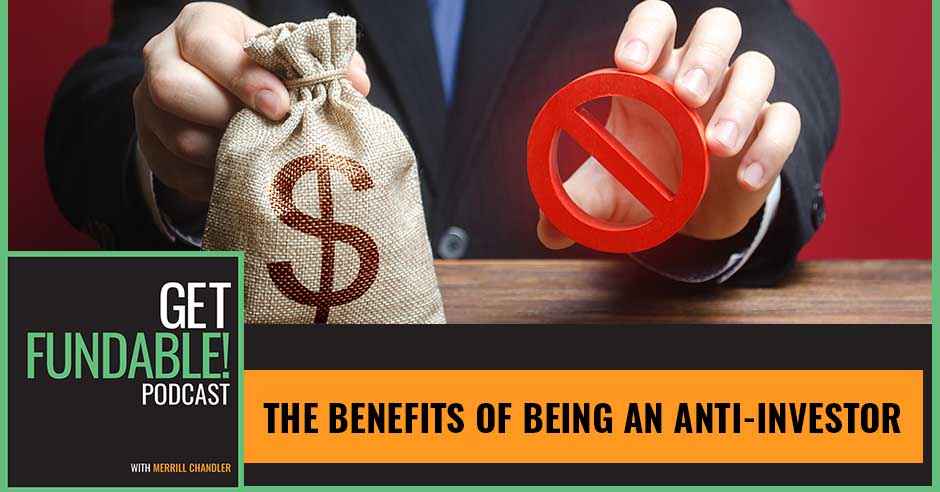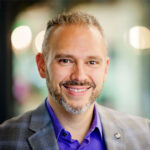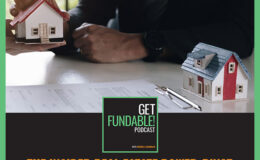
Even though many people dabble in the world of investing, Chris Miles has chosen to go down the road less traveled. In this episode, he joins Merrill Chandler to discuss his journey from financial advisor to anti-investor. He explains how to get out of real estate, focus less on your credit score, and abandon financial myths many advisors pass on as truth. He discusses how to make the investment grind optional, which is only about acceleration instead of accumulation of money. Chris also shares how he guides people to live their lives now and not tomorrow by adopting a financial approach that delivers actual yield as soon as possible.
—
Watch the episode here
Listen to the podcast here
The Benefits Of Being An Anti-Investor With Chris Miles
In this episode, I’m with Chris Miles. I met him at a mastermind. He’s a genius of a man with an amazing backstory about how to create cashflow. We hit it off perfectly because we create credit lines that allow people to invest to create more cashflow. I was fascinated. You are going to love this interview. I will see you on the inside.
—
I’m with Chris Miles. We met at a mastermind. It was like pieces of a puzzle coming together, forming a bigger, more cohesive opportunity to serve our tribe and real estate investors. I was speaking to his community. I now have the pleasure and opportunity to have him join me. Chris, welcome. I’m glad to have you here.
It’s good to be back talking together again.
It’s great to be together, and we’ll take the show on the road. We’ll go from podcast to podcast as a dynamic duo. I want you to give us your intro because I could read the bio, but it doesn’t have any heart to it. I was impressed by you. I only bring people on my show who wow me. I would love for them to get to know you. Chris, tell us who you are, why you’re on this show, how you become this influencer that you’ve become, and all the other things that you do.
I’m an anti-financial advisor. I’m against financial advising, which I know a lot of you guys are too because, let’s admit it, financial advisors suck. They’re good people, but when it comes to creating wealth and making money, they’re as lost as every other American out there.
They make commissions on selling us stuff that they’re lost on.
They’re salespeople in suits. That’s their profession. I get that because I was one. That’s why I can say I’m more of an anti-financial advisor now. I didn’t start out that way. I was raised by parents who are good middle-class and hardworking parents. My mom was an artist. My dad worked in the automotive industry and they taught me good things like, “Work hard. Your word is your bond.” When it came to money, it was always scarce.
There’s always a scarcity around it, “We can’t afford this. What do you think I am, made of money? Money doesn’t grow in trees.” You can be anything you want except for that. You can’t have a lot of money. Even the word budget seemed like a naughty word even in that household. My dad was the cheapest you could be.
The guy forgets bad service at a restaurant. Not only would he not tip, which he didn’t like doing anyway, but if he got bad service, he would steal salt and pepper shakers from the restaurant. That’s the guy my dad was. He’s the guy who would buy Mrs. Butterworth’s syrup, a whole case of it just because it was on sale. Twenty years later, he still has it. He’s a Craig guy with a depression-era mentality upbringing. I vowed I didn’t want to be like that.
When I got to college, I wanted to become a business consultant. I figured. “If I’m going to do that, I should have real-life business experience, not just an MBA.” I took a sabbatical from college. I was trying to figure out what business to do. The first thing that came up was being a financial advisor, not knowing that they took anybody off the street as long as you could pass a test with 70% and you didn’t have a criminal record. I fit that bill. I was able to do that.
My tribe knows my backstory. You’re ahead of me on that one, Chris.
I did that, and I enjoyed being my own boss. It was purely commission only. I had to sell. If I didn’t sell, I didn’t make money. After several years, my dad says, “Chris, what are you going to advise me?” I never thought he would ask that because he was the guy who never shared how much money he had. That was a bad thing to do. You can’t trust even your own kids.
I sit down with him and look at his finances for the first time. I’m like, “Let’s see what this cheap son of the gun has got here.” As I sit down, he shows me how he’s paid off all his debt. He paid off his house in eighteen years. He was so proud of that. He’d been stuffing money on his 401(k), getting the match and everything else. This is after Y2K. That little dip in that recession that we had. We were coming out of that.
As I was looking at his numbers, I said, “Dad, you did everything Dave Ramsey would tell you to do. You’re 61 years old. If you wanted to retire now, you better hope you die in five years because that’s how long it’s going to be before you run out of money.” He’s like, “Chris, I don’t want that. Give me something else. What else can I do?” I’m like, “I don’t know. You did everything right based on what I teach as a financial advisor. We could put you in this mutual fund, that type of investment, or this annuity. I could put you in those different things, but I don’t know what the stock market is going to do. I can’t guarantee you’re going to make anything more than what you’re doing already.”
I need to speak to my crew here. Did you hear what he said? This is what we fight against all the time in credit and funding. The misrepresentations and the myths that you’ve done everything right, and yet, you haven’t got a dime to your name in the past five years. We teach our crew that everybody follows conventional wisdom in credit, and you have an 820 credit score and can’t get a dime. This is speaking our cruise language.
It bugged me a lot because, in a lot of ways, he was my inspiration for becoming a financial advisor. When he would say things growing up, saying, “This job is going to kill me.” He had strokes and heart attacks in his 40s because of the stress of his work. I thought, “I can give him some of his life back.” Only to find out that when he was following the same advice I had been giving for the previous four years to my own clients, he had done it. I saw not just his future, but I saw my future and my clients’ futures. I saw what was ahead and it didn’t look rosy.
It didn’t look like those brochures they told me to hand out with those old couples and nice tan skin sitting on the beach. The woman has the beach hat on and the guy has a full head of hair, more than I’ve got. It’s not like that. It’s not like sitting on a beach in Hawaii. It’s like Omaha Beach in World War II, with people bleeding and dying on D-Day. That’s what it’s more like.
That’s the reality. When I saw that, I was in this dilemma. Do I keep going down the path I’m going on? That’s what my career is doing. Am I getting to the height of my career, or do I leave it, try something else, and keep my integrity intact? I chose the latter because when the students are ready, the teacher appears.
A couple of weeks later, one of my friends that I trained to be a financial advisor quit to do real estate investing. We were having a discussion. I called him up because I hadn’t talked to him in several months. I want to know how he’s doing. If he was broke yet, he was ready to come to work for me because nobody makes money in real estate. That’s a pipe dream. Come back as a financial advisor. That’s where the real money is. I call him up. I was like, “How are things going?” He’s like, “Life is amazing. My dad and I have partnered on these real estate deals on some of these flips, and we’ve already doubled my dad’s income as a professor at the local university.” I said, “That’s too good to be true. That doesn’t fit my 10% to 12% rate of return box.”
The market has never done that, but we pretended like it did. I was like, “No, there’s no way. That’s impossible.” He got me to see the light. He pointed out, “How many of your clients are financially free?” None. Not even the retired ones because they still worry about running out of money living long. How many of you guys, as financial advisors, are financially free, not off the commissions earning but doing these same investments?” I realized there were guys in my office working since the late 1970s who were still not able to retire. I figured there was a problem. I quit after I popped in the little matrix red pill to learn about the real estate world.
You hit another one of our positive triggers. We are all in the financial matrix. We’re all waking up. I’ve been called Morpheus. In your industry, you’re your own Morpheus. Our job is to wake up the sleepers who want something better for themselves.
The difference is I’m not warning the guys in my industry well enough. I’m warning everybody else. If anything, I’m like Morpheus and like, “I’m going after Trinity.” It got me out of it. I’ve vowed never to teach about money again. I felt like such a liar and a deceiver for all those years that I said, “I’m out.” I stayed as on as a mortgage broker.
I also was teaching stock trading on the side. I was teaching people how to trade stocks and options. In the meanwhile, I was learning about real estate and things to do there, especially when I started to realize it wasn’t about how much you accumulate of your money. It’s about not accumulating your money. It’s acceleration.
Real estate investing is not about accumulating money. It is more about acceleration. Share on XHow do you get it going from accumulating this big nest egg that you’re supposed to accumulate for many decades and, hopefully, you have enough to live on less than the interest when it comes to the traditional financial advice, living not 4%, but 3% or 2%. You try to do that. Do I get my money to start paying my income now? I did that latter part.
Later that year, I was financially independent. Granted, I only needed $3,500 a month. People say, “That’s amazing in one year.” I was like, “$3,500 a month is not hard to hit. I was working a couple hours a week doing that.” I never thought that was possible because I worked 50 to 60 hours a week, making less money. I was starving.
To be able to switch that up and realize, “I could quit being a stock coach and doing mortgages.” I started referring it to the other guys. I would pass on the information. That’s where some of my other residual streams of income were coming in. It was on referring friends and family if they wanted a mortgage. I’m like, “Talk to this guy.” He cut me on the deal on the back end. I was being a mortgage broker but brokering the brokering.
You’re brokering the deals rather than getting them funded.
After a while, I got bored. I realized that you couldn’t sit around and do nothing. That’s where I came out of retirement. In 2007, I started to teach people how to get out of the rat race. I went through my own reentry of the rat race during the recession, where I went over $1 million in debt. I had to dig out of that hole with no money and credit. Eventually, I did my credit score. I saw my Facebook memory. Thirteen years ago, it was a 510. I ran it again a few years ago. It was 806. I realized filing for bankruptcy would’ve been better for my credit score rather than trying to pay back all those collections and loans over time

Anti-Investor: Filing for bankruptcy would have been better for your credit score rather than trying to pay back collections and loans over time.
You and I will talk about that later. You made the best play because you have been dead in the water for at least 7 of those 10 years. You can’t touch anything that’s of value. You can get seagull credit or horrible bad credit for non-fundable profiles. I’m going to praise the way you did it because it is a lot less overall time, and you haven’t burned the relationships with those banks. You made a great play there.
I went with my gut. I was praying about it a lot, and that felt right. I’m stubborn to give up. I don’t know, but it worked out eventually. I got out of the 500. By 2016 and 2017, I was able to be financially independent for the second time. I did it twice. That’s where I’m much wiser the second time around. When I talk about passive income, I mean passive. I don’t mean having an active fix-and-flip business. I’m nothing against that. You can make millions of dollars flipping, wholesaling, and all that great stuff.
I realized I wanted to be work optional. I wanted to say, “If I had to shut my business down, I’m still good.” That’s where I got myself by the end of 2016. Ever since I’ve been on a mission to help create that freedom for people and get them to work optional. You work because you want to, not because you have to.
See how much better that is than me saying, “In 2007, he took another hit on his personal life.” No, I love hearing the story from your lips. If there was a pie chart of what you do when it comes to this campaign and mission that you’re on to reeducate the miseducated, what would you say that pie chart is of the things you focus on and help them to punch through to the next level of their lives and quality of life?
It always comes back to what’s on my t-shirt. The primary message is CashFlow is Freedom. That’s the main thing I learned in both situations. Whether I was broke or wealthy, it didn’t matter. It always came back to what those income streams are coming in, especially when you have multiple streams of passive income coming in. That’s where true freedom is. When you have a lot more money coming in than what’s going out, that’s freedom. You don’t have to live on rice and beans to do it. You can still live the quality of life that you want, but do it on your terms.
Financial freedom means being able to live the life you want on your own terms. Share on XThat doesn’t matter whether we’re doing it through consulting or helping people one-on-one to create passive income. It’s like a game plan or a financial plan of sorts. Even though we’re not financial planners, we create our own game plan to help them get connected deals to create passive income. We’re doing it through infinite banking. It always comes back to that central core message, which is about cashflow creating freedom. How do we create that freedom of prosperity, not 30 or 40 years from now, but now? You can live that life that you love with those that you love.
Here’s the question. We wear a T-shirt because it means something to us. The signage you have in the background is Live Your Life Now, Not Tomorrow. Why that message? There are 100 ways to say that, but you picked that one. What was it that triggered inside of you to make that passionate and for that to be like your battle cry?
If you’re asking my wife, she’d say, “You should live your life now more often. Why don’t you go out and play more?” You get someone caught up in work, but the truth is I am on a mission. I work optional. I don’t have to do this at all, but it is important to me. The name of my company is Money Ripples. The reason it’s called that is because I was trying to come up with a company name. I had another company I was a part of before 2007 through 2012. I worked with that company, and we did some great work there. I felt like there was something more.
I was trying to think, “What would be the company’s name? I was trying to come up with something with cashflow because I love cashflow. Cashflow is where there is freedom. When you have a lot more income coming in than expenses, that’s freedom versus being the whole $15,000 a month. It wasn’t 2007. That sucks.
I’m a runner and a marathoner. I was out for a run. While I was out, I remember thinking, “What’s that vision I have?” I couldn’t come up with a good name, and Robert Kiyosaki took all the cashflow stuff. I’m like, “What’s a good name?” I remember thinking about the vision. I was like, “I had already helped 600 families become more financially free.” It’s not independent at that point but, on average, frees up about $34,000 a year in cashflow in that first year, whether it’s through tax savings, watching their money, or paying off debts. I’m getting creative there.
I remember thinking about one couple in particular. They were out in North Dakota. They’re chiropractors. He was working six days a week to the point where they had no freedom. In our first meeting together, we were able to help them free up $6,000 a month between his personal and business life.
The first month they freed up $6,000, what did they do? They bought a four-wheeler. There are all those guys out there like financial advisors, and those nerdy guys that say live on rice and beans will say, “That’s horrible. That’s stupid.” I knew that there was a bigger purpose behind it. His wife said, “Chris, I know a lot of people judge us for taking that $6,000, buying something with it, and blowing that money, but you don’t understand. With that four-wheeler he bought, he’s taking off the weekends to be with the family. We’re going on that four-wheeler every single weekend. My kids have their father and my husband back. I’m almost in tears.”
It’s the quality of life.
What’s the effect of that? It teaches a different legacy for children to live by versus a point of survival and working hard.
We never know that the perfect person is the grasshopper or the ant. Plan for tomorrow and play today. It’s the quality of life we’re looking for. It looks like what you’ve built an entire mission and vision around is to save like the ant and play like the grasshopper.
It’s about making your life impacted today by making those most impactful decisions because everybody in financial planning is telling you, “Someday.” Even Dave Ramsey says, “If you pay off all your debt, in fifteen years, you’ll be debt-free.” People get excited about something that may never happen in fifteen years.
We’re getting people to improve their cashflow now, which improves their quality of life right now. That changes things. It’s not only changed their dynamics with their families. It changes the dynamics of how they interact with communities now. They stop looking and worrying about themselves. They start looking outside of themselves. They look to serve and bless more people. That’s what hit me. I come up with the name Money Ripples. I was like, “I got to run back home. Make sure nobody is taking that website or the LLC yet.” I ran back as fast as I could. I call it the shower power. You’re in the shower. You get that great idea.

Anti-Investor: By improving your cash flow, your quality of life improves. You change the dynamic of your family and how you interact with your community. You start looking outside yourself and serve more people.
You’re out running. You’re amid the euphoria, and now you have Money Ripples. What does Money Ripples do? What are the ingredients that my tribe might lock onto that you coach, support, or help them become more aware and conscious in their decision-making process?
We might get some real estate investors or business owners who say, “I’d like to figure out how to get out of the rat race myself rather than being transactional in my business and be in that forever.” For the most part, I get more people who talk to us about infinite banking. I call it no BS infinite banking or Max ROI infinite banking because there are some people talking about infinite banking out there where they use life insurance as a tax-free savings account. The problem is most of these insurance agents out there, as good-hearted as they are, they’re not investors. Even the few real estate investors still overcharge the heck out of you.
My tribe knows me. You are welcome. Sometimes, you have to say the way it is.
They overcharge you to death. It’s not they’re bad people, but they want to make a living off that. I don’t need that. I’ve made it our company’s mission to make sure there’s no BS there. You get the best-returning life insurance policy possible. This is not the death insurance we’re talking about here. There are things like whole life insurance, which has a death benefit but also has this tax-free supercharged savings account inside of it that pays you better than point nothing percent at the bank. Not to mention, it gives you some cool leverage aspects. I’ll talk about it in a second. It’s like a Roth IRA but without all the stupid rules.
It comes out tax-free. It doesn’t have all the dumb rules of 59 and a half. You don’t have to worry about making too much income. The way that I’ve used it, especially from an investor perspective, is that you can get a line of credit against the cash sitting in this account. They’ll pay you 5% to 6% tax-free, which is great. That’s better than what most people get in their 401(k), and they get taxed on it.
On top of that, if you’ve got that cash in there, let’s say there’s $100,000 you’ve built up inside of this thing. You want to go and put a down payment on a property or use it in your business for marketing strategies. You use that $50,000 instead of withdrawing it as you would out of your bank account, and now you’re not earning any interest on that money because you pulled it out. Instead, you leave all the money in there. That $100,000 remains untouched. You get a line of credit against that money. You get a line of credit of $50,000 with the insurance company acting as a user bank, and there are no minimum monthly payments.
They charge you interest, which is dirt cheap compared to prime rates, but they don’t charge you any monthly payments. If you’re a flipper and you want to flip a property, it’s going to take 6 to 12 months. Even if it goes beyond the 6 to 12-month timeframe, they charge you interest. You do not have to make payments in the meantime. You’re completely off the hook when it comes to your cashflow. Down the road, you could pay it back or pay it back never. The deadline for paying back their loans is your debt. The balloon payment is when you die. They take it out of your death benefit and pay the rest of your family tax-free. It works that way.
You’re able to take that money out, borrow at a lower interest, and still make money on your deal. Here’s the cool thing. They’re still paying you on the money in there. If you had $100,000 in there and you pulled out $50,000, they’re still paying you on all $100,000. You’re earning this compounding tax-free interest. They charge you interest, but if you take that money and flow it back like the cashflow to returns from your company or business, you are using that to go back in to pay down the line of credit and use it again. What ends up happening is you pay way less interest than they pay you, which means you earn money in two places at the same time.
I’m connecting the dots for my crew. Everybody, you recognize that he says, “Get a credit line against the money that you’re saving inside of this particular account or this specialty use account.” I have clients who are like, “I didn’t know I could get these credit lines. This is crazy. I wanted to believe. What do I do with all the money?” Here’s one more way for you to use your fundability and approval readiness to borrow at even better rates inside against this account because they’re borrowing it against the insurance company. It is playing the bank.
It doesn’t show up on your credit report. That’s the cool thing. It’s a private transaction.
The use of that credit line doesn’t harm your personal fundability.
If you set it up the right way, like we talked about, where you minimize the cost as much as you can. That’s the big difference between ours and others. Others will have costs, and they’ll do an okay job, but they don’t get you the best deal. If you can minimize those costs as low as possible, you want to get to the point where it’s paying for itself as quickly as you can to where it feels like a tax-free savings account versus money coming out to pay for the insurance costs, which is what typically happens. We want to minimize that.

Anti-Investor: If you minimize costs as low as possible, you want to get to the point where it is paying for itself as quickly as you can so that it feels like a tax-free sales account.
The other thing I’ll mention is a cool creative strategy I don’t often share, but we talked about getting fundability. I had one client who was a doctor. They’re out in Minnesota. They wanted to purchase a building for their practice, but they wanted to rent out some units. They wanted to be a rental property but also have a place to have a practice. They’re telling me, “Chris, we got this old life insurance policy. It’s got $300,000 of cash in it. Should we cash it out, get the money out, and use that to pay for the building?” They need about $375,000. I said, “You could, but don’t because you might end up paying taxes on the gains. If you take it out of that tax review system, they’ll tax you.”
I said, “Don’t do that. Let’s instead go to the local bank that you’re talking to and see if we can get a secured line of credit using that money or add extra collateral here that they might give you better terms.” They went to their bank, and they asked. Their bank said, “If you give us some of that $300,000 of collateral, we’ll give you the $375,000, and we’ll even lower your interest about 2.5% less than the current mortgage rate.” They got dirt cheap interest. They were paying $1,800 a month.
By the time they built it out, they ended up renting out the unit. The renters were already paying for their mortgage payments for them. A year and a half later, they went back to the bank. They said, “We use our life insurance as collateral. Now the building is built. Can we make that the collateral?” They said, “Yes, and we’ll keep the terms the same.”
Even if they got a mortgage, they would’ve been paying 2% or 3% higher at the going rate at that time. Because they used the life insurance first as double collateral for the bank, the banks gave this dirt cheap mortgage payment and mortgage interest. They were able to take the lien off their insurance policy and still keep those same terms for the next 25 years.
This is magic. My people will see all the math in their own heads because as they read the blog and the business funding master course they’ve all subscribed to, everything we teach is velocity funding. Velocity is direction and speed. Everybody has a different direction that they want to go in and a different speed capacity.
We match our strategies to their situation and pick the direction and speed. This is what you’re doing. I’m reinforcing that they’re recognizing the brilliance of this because my passion is to train them to think outside of the box, look at opportunities that normally don’t present themselves, and connect the dots.
Thank you so much for giving us the top of the ice caps. It’s barely the top of the iceberg. How would we get ahold of you for more information? Do you have a YouTube channel or free place for us to go? It’s the know, like, and trust. Now, they know you. They might even like you. It’s not, I don’t, but they might like you. The idea is to see your vast experience so they can build rapport and trust with you. How would we get ahold of you?
There are two ways. One, you can go to our website, MoneyRipples.com. There is a lot of free information there. Two, you go to our YouTube channel called Money Ripples. I had to think about that one for a long time. I came up with the name Money Ripples. You can go to the Money Ripples channel, and we have lots of videos and podcasts.
Thank you for that offer. I’d like to close out with a question I was asked once a long time ago as a guest on a podcast. I love the question, and I’m keen on it. What were your biggest epiphany moments? You shared about your background, but what was the greatest a-ha moment of your life that changed your velocity?
I have two coming to mind. One was tied in with what we talked about before. The biggest thing for me, from a financial advisor standpoint that blew my mind was when I realized it was about income and accumulation. Back then, hard money lending in 2005 and 2006 was generous, more than it should have been. I remember seeing 2% a month or 24% a year for hard money lending. I did the math. I said, “You’re telling me that if somebody has $250,000, this could make them $5,000 a month. Before in financial advising, to make $5,000 a month or $60,000 a year, you would have to have $2 million saved up. This is mind-blowing.”
This is when I was excited running around, and people were like, “What are you excited about?” I’m like, “My mind has been blown with what I could do financially.” They’re like, “How much have you made?” I’m like, “Nothing yet, but I’ve seen the light. I get it now. I get why most investors make so much more money.”
The one thing that’s helped me, not there, but in life in general, is that if you want prosperity financially in your relationships or anywhere else, it comes down to this one principle I learned from real estate investors at that same time. They said, “Never ask yourself, how do you make more money?” People have asked that question forever, and they’re still broke. Stop asking, “How do I make more money?” Instead, ask, “How can I create more value for more people?”
Stop asking how you can make more money. Instead, ask how you can create more value for more people. Share on XMoney is only the result. It’s the receipt of service rendered, problem solved, or some value added in people’s lives. Instead of hyper-focusing on how to make money, start asking, “How can I serve people, solve problems, or add value in such a way?” The money is a natural byproduct. Once I got that light bulb moment, money was no longer hard to make anymore. It was formulaic. Problem solvers and people who are servants, especially servant-hard people, are the people who win. They win in all aspects of life, not just financially.
I love both of those. I’m glad you shared them. This has been amazing. Thank you, Chris, for joining me. I’m excited about us developing our relationship and serving our communities even more directly than we’re able to do in this show. Everybody who’s tuning in Chris Miles got Money Ripples. Are you freaking kidding me? Pay attention, research his stuff, watch his stuff, and follow your heart towards your bigness and greatness, not your smallness. Thank you for joining me. We will see you next time. Thank you.
Important Links
- Chris Miles – LinkedIn
- Money Ripples
- YouTube – Money Ripples
- http://Facebook.com/MoneyRipples
About Chris Miles
 Chris Miles, the Cash Flow Expert and Anti-Financial Advisor, is a leading authority teaching entrepreneurs and professionals how to get their money working for them TODAY! He’s an author, podcast host of the Money Ripples Podcast, has been featured in US News, CNN Money, Entrepreneurs on Fire, BiggerPockets, and has a proven reputation with his company, Money Ripples, getting his clients fast, financial results. In fact, his personal clients have increased their cash flow by $300+ Million in the last 14 years!
Chris Miles, the Cash Flow Expert and Anti-Financial Advisor, is a leading authority teaching entrepreneurs and professionals how to get their money working for them TODAY! He’s an author, podcast host of the Money Ripples Podcast, has been featured in US News, CNN Money, Entrepreneurs on Fire, BiggerPockets, and has a proven reputation with his company, Money Ripples, getting his clients fast, financial results. In fact, his personal clients have increased their cash flow by $300+ Million in the last 14 years!




